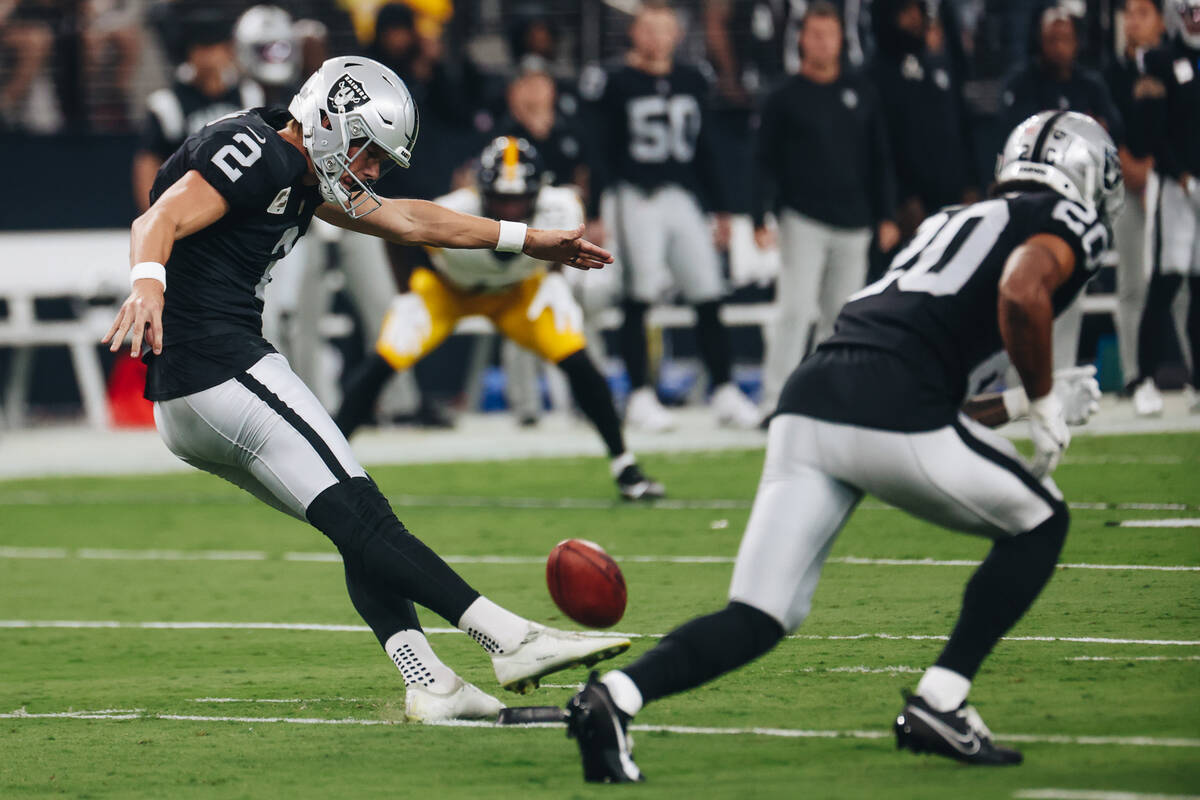New kickoff rule brings mystery to Raiders, NFL: ‘It’s vastly different’

It may sound like hyperbole when Raiders assistant special teams coach Derius Swinton II describes how massive of a difference the NFL’s new kickoff rules will make.
But few changes to the game have had the kind of impact this one is expected to cause. The plan by NFL officials this offseason to try to make the kickoff relevant again is as radical as the implementation of the 2-point play in 1994.
“I equate it … to the one on offense when they had the forward pass or something like that,” Swinton said. “I think it’s vastly different because it’s just such a totally new thing. It’s not something you have any real precedent for.”
The impact could be staggering.
Just 22 percent of NFL kickoffs were returned last season. The league expects that number to rise to between 80 and 85 percent this year.
That would mean almost 2,000 more meaningful plays next season. It should also lead to several sleepless nights for special teams coaches, who haven’t had to worry too much about kickoffs in recent years.
“I think it’s excitement more than stress because this is going to be new to everyone,” Swinton said. “You can’t yell at the players if drives are starting at the 37 or the 42 or whatever because we don’t know what the numbers say it should be. We can guess, but we just don’t know. So there is an excitement of what it’s going to look like.”
Teams around the NFL were experimenting with strategies this offseason.
Some were seeing if safeties or linebackers could kick to get an extra tackler on the field. What makes that difficult is the new rules place a premium on ball placement, meaning an experienced leg may be necessary.
Others were trying to skip the ball on the field or even attempting drop kicks to get more spin on the ball.
The Raiders were no different in terms of throwing stuff at the wall.
“The hardest part is the players can’t see examples,” Swinton said. “You can’t show them film. Every time they do something, it’s the first time. You have to be open-minded because it’s all going to evolve. It can change even in the preseason. I think that’s the biggest difference.You have something that’s a brand-new baby that you don’t know how it’s going to evolve and it’s up to you to make sure our team is in the best position given what this new thing is.”
There will be experimentation with returns as well.
Will teams use faster returners? Or will they opt for larger runners who can break tackles? Will teams put their fastest blockers on the field or their biggest?
“You’re not only trying to come up with new ideas for it, but what players are best suited for what spots,” Swinton said. “There are just so many layers to it.”
One trend emerged during the Raiders’ practices. There should be some huge returns if returners can catch the ball in motion or even field it off a bounce.
That means one change made just before the rules were approved in May could have a massive impact. At first, a ball kicked through the end zone would be brought out to the 35-yard-line. The final version of the rules switched that to the 30.
It’s possible some teams will choose to live with their opponents starting there instead of possibly allowing a big return. But who knows? There is still so much time for teams to adjust their thought process before the regular season.
Expect the unexpected.
Contact Adam Hill at ahill@reviewjournal.com. Follow @AdamHillLVRJ on X.